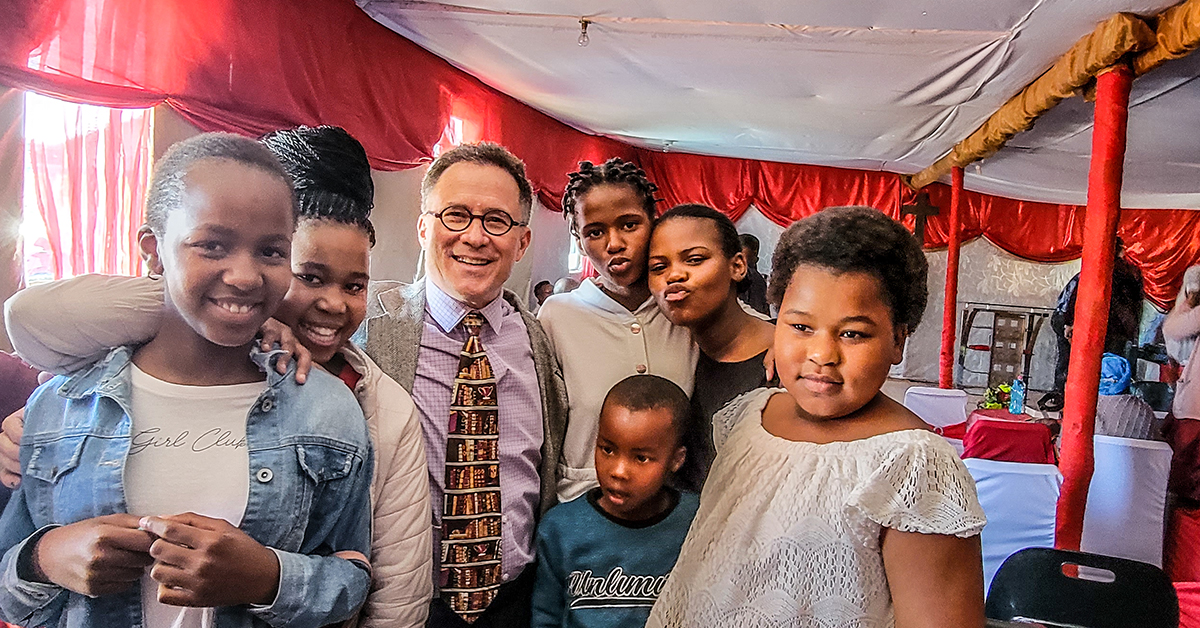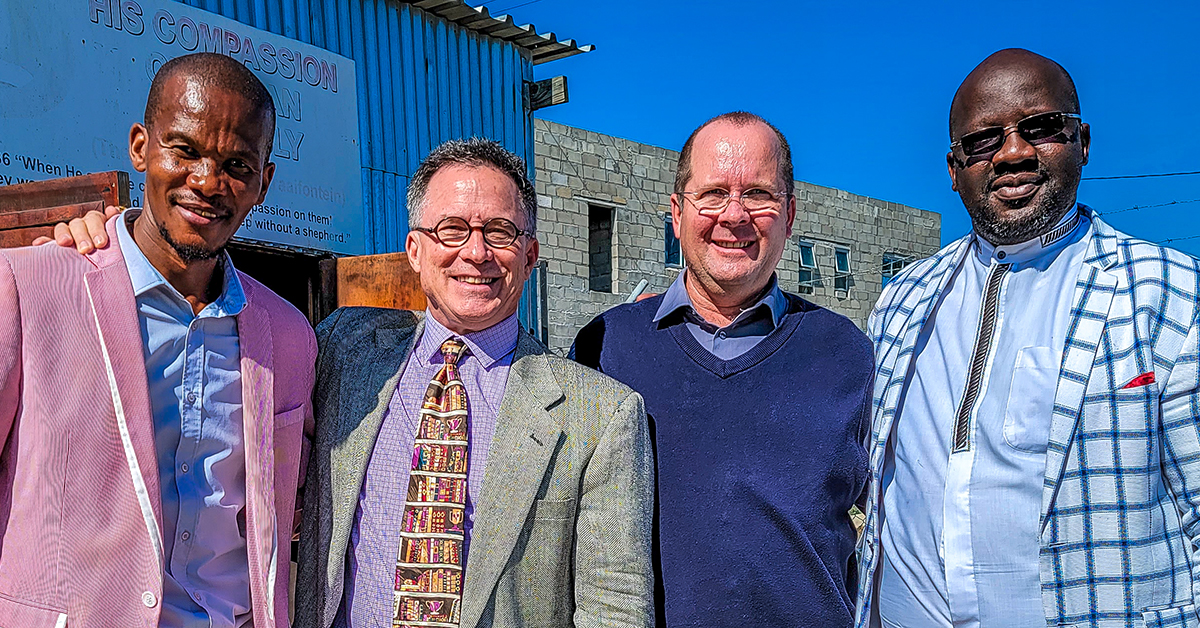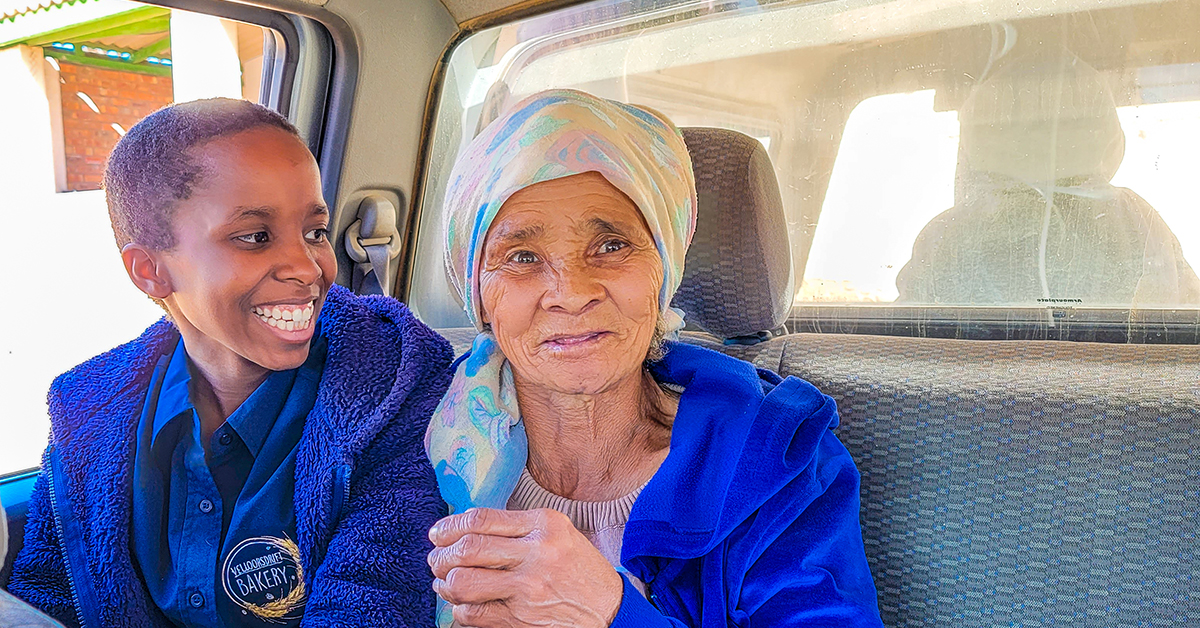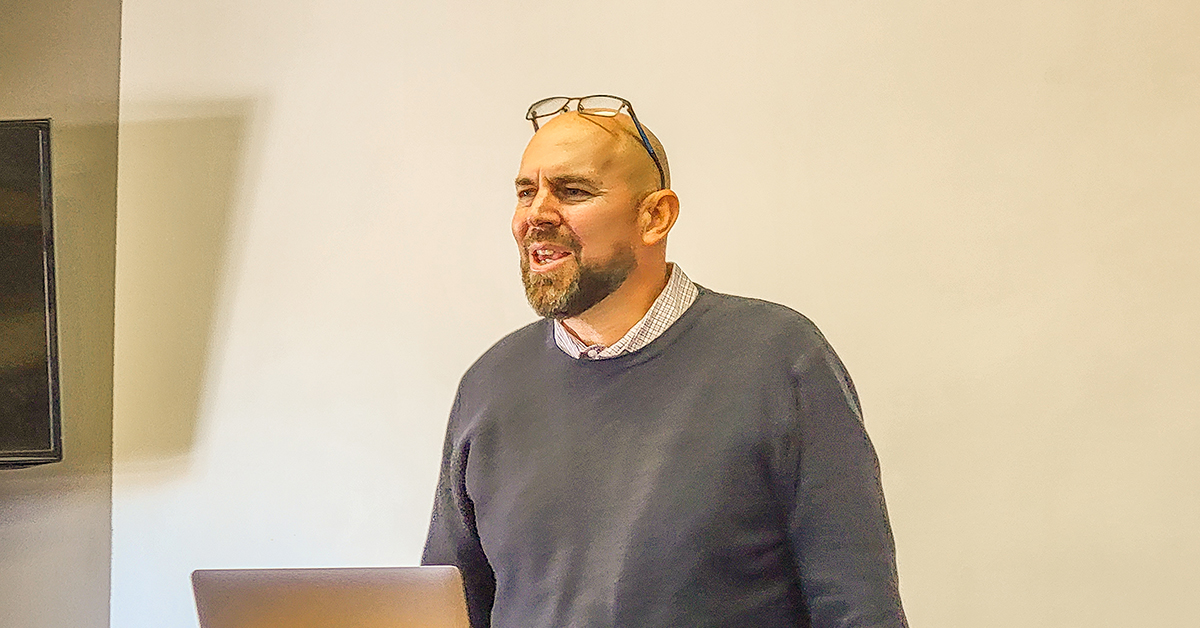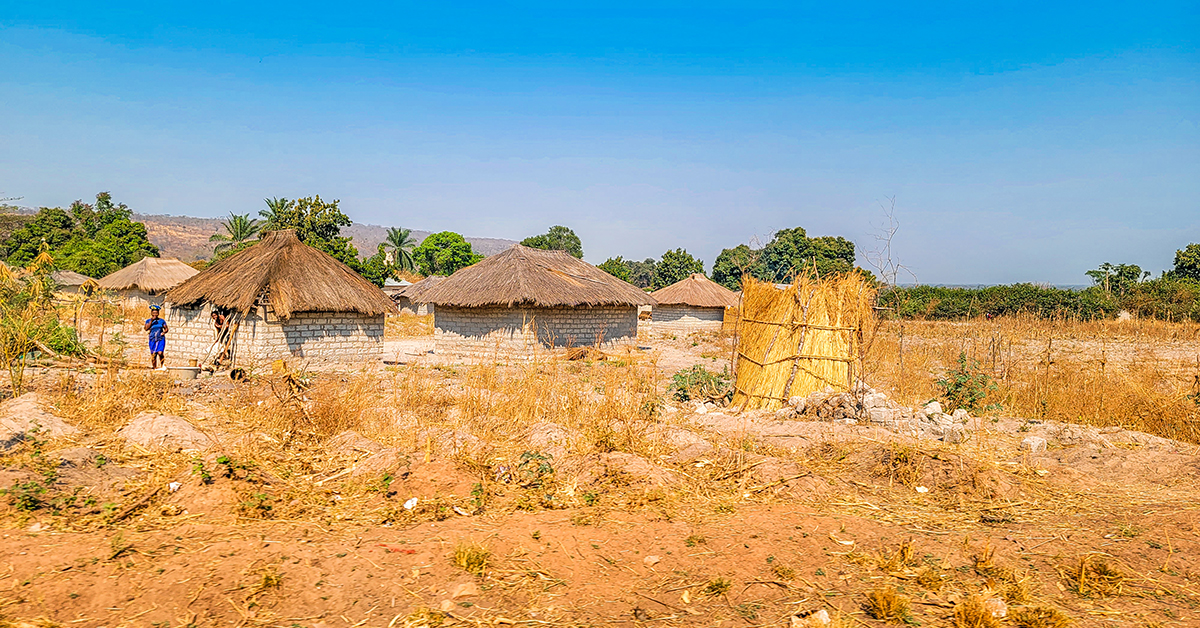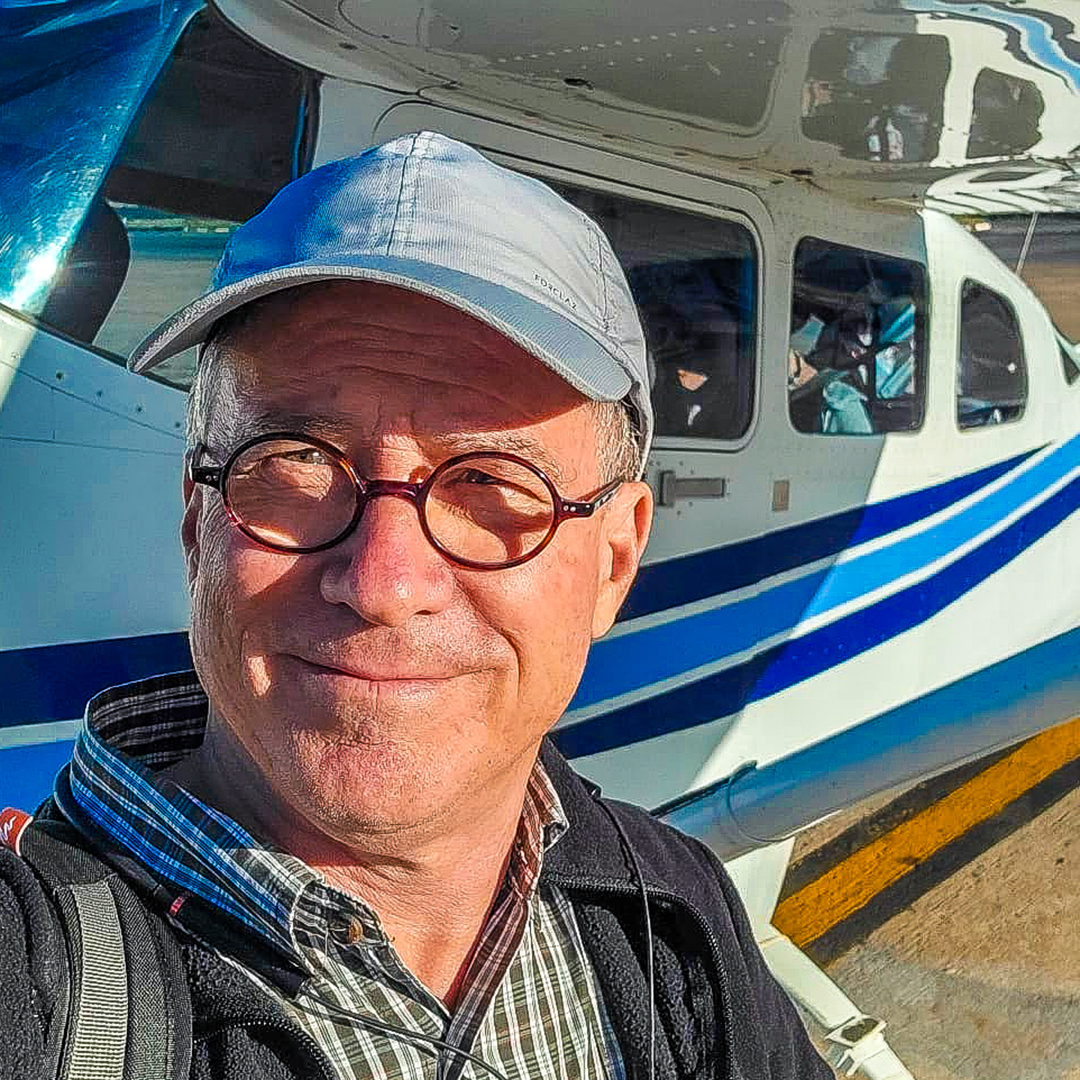South Africa

Cape Town: A Meaningful Visit
“That meant so much to them,” Charl said as he and Steve got in Charl’s vehicle.
It was midmorning on a Sunday, following the second preaching opportunity for Steve. Steve and Charl van Wyk had just visited a church located in an informal township. The township was well-known to many as a place you wouldn’t want to go. Those who don’t live there tend to avoid it.
But the fact that Steve and Charl went to the township to fellowship with the believers there meant the world.
The pastor was pleased as could be.
“This visit did more for him than we can understand,” Charl commented, referencing the pastor of the church.
The visit did something simple but important. It showed this pastor and his congregation that they are important. Valued. And as a marginalized, shoved aside group, they needed a reminder of this truth.
Charl’s conference for church pastors and leaders began the following afternoon. The teaching on forgiveness had been powerful.
One pastor shared that his congregation was going to think they were hearing from a new pastor starting that Sunday. He had also phoned his wife, telling her he was going straight from the conference to make things right with his uncle and sisters.
Onseepkans: "Our Greatest Ministry Yet"
“This is our greatest ministry yet,” Gerhard commented to Steve.
ITMI’s Gerhard le Roux was referring to the newest outreach he and his family were involved with.
At the time Steve visited Onseepkans, two other missionary families were visiting from outside the Cape Town area, where Gerhard and Elmane le Roux lived and ministered before moving to Onseepkans.
One was transporting a special motorbike for the le Rouxs' newest and most effective ministry yet, the Daily Bread Bakery.
The old and used motorbike had been customized with a box that could hold the fresh-baked loaves of bread made in the le Roux’s semi-commercial kitchen, which they deliver to families in the area every day.
By the time the deliveries are made, the Daily Bread Bakery doesn’t make a profit. The custom motorbike will help cut the delivery costs, but it won’t make the bakery profitable - at least not from a business perspective.
The Daily Bread Bakery serves two very important functions - and neither of them is profit.
Function #1: Ministry
Daily deliveries mean frequent contact. Frequent contact with the le Roux family means frequent contact with Jesus living inside them. Gerhard prays with many of the recipients as he delivers the bread.
Function #2: Freedom
For those living in Onseepkans, the nearest real grocery store is 80 miles away over mostly washboard dirt roads. Most can’t afford transportation to get there, which leaves them only one option. And the owners of the local shop know it.
Buying food at the tiny trading post in Onseepkans would be like buying every grocery item you need at theme park prices. Most of the people of Onseepkans do that on tiny government pensions of around $135 a month. The majority are deeply in debt to the local shop.
The le Rouxs have helped a few members of their congregation get out from under the oppression by buying groceries in bulk from the grocery store in Kakamas and allowing others to buy the groceries from the le Rouxs almost at cost. The bread deliveries help, too.
They’d like to help a few more people by offering a few more items at decent prices, but that requires capital to pre-purchase the basic staples of the townships' diet.
We can help Gerhard and his family have many more spiritual interactions with the normally closed-off people in the community, by helping them stock a small grocery store that will always give far more bread of life than physical food.
Durban: Kelly's New Ministry
“For the last decade and a half, we’ve almost been doing it backwards,” Kelly told Steve.
In Durban, Steve visited with ITMI’s Kelly and Cherise Smith, who recently moved to Durban from 7 Rivers Farm where they spent the last 15 years ministering.
He also got to tour NextGen Seminary, a new project Kelly is involved with, equipping Zulu men to reach other Zulu men.

The Zulu culture is patriarchal. The elder man in the family must give his permission for the women and children to participate in any ministry events and outreaches.
Kelly and Cherise have also learned that though they’ve been faithful to declare the Good News, the Zulu need to hear it from other Zulu who have put their faith in Jesus.
Otherwise, they tend to hear the Good News, but accept it only as information about another people group’s religion, never considering that a Zulu could also follow Jesus instead of the traditional Animism beliefs that are part of Zulu life.
“For the last decade and a half we’ve almost been doing it backwards,” Kelly explains, “We’ve been in the rural area with the grandmothers, aunts and children.”
“This [the seminary] excites me,” Kelly continued, “because we’re able to reach the hearts of men. If we can equip a Zulu man for ministry, God can, through him, reach his own nation [and family].”
Zambia

Chavuma: Expanding into Angola
“Ten year old girls become mothers in these villages,” Johan hit Steve with the stark reality.
The capital of Communist Angola, Luanda, is just about as far west as it could be and still be in the country.
But Angola’s eastern border is not far from Chavuma, the ministry base of ITMI’s Johan Leach in Zambia. It’s from this base that Johan is discipling 5 hand-picked leaders, who now disciple several leaders themselves, all training believers to evangelize and disciple others.
As Johan’s evangelists push out into the isolated Luvale flood plains west of the Zambezi River to reach the many villages there with the Gospel, the difficult reality about young girls is what they are finding. It gets worse the further west you go, especially in the villages across the Angola border.
They are also finding that mothers are dying needlessly from birthing complications that could be mitigated with professional help and equipment.
The wife of one of the pastors called to the Luvale people in Angola and eight other believing women have already become formally trained midwives. But in order for them to be as effective as they can be, they need equipment for their clinic.
Right now, the midwives don’t even have gloves to protect them from HIV/AIDS and other diseases during birthing.
Because of your gifts, ITMI was able to enhance Johan’s ministry and the spread of the Gospel across the Luvale nation by providing a water well for the clinic and attached church in Angola.
Your support also provided a water well, tank and pump system in another strategic location that will allow evangelists to travel further into the unreached bush to share the Gospel, disciple the people and also provide a landing spot for a mobile medical team to come and regularly meet the medical needs of those that can't get to Chavuma to deal with their health issues.
Kabwe: ECA and Spring of Love
“It has been a sacrifice changing locations,” the instructor told Steve.
Shortly after Zambian schools reopened following COVID related closures, Steve arrived in Kabwe, Zambia.
He visited Excellence Christian Academy (ECA), then headed out to visit Spring of Love, the newly opened village school about an hour and a half drive from Kabwe. The administrator of the school, who is also a teacher, told Steve about how he had given up the comforts and conveniences of life in Kabwe to move to this remote village.
There were no available huts in the village, so he and the other teacher must cycle over 5 miles each way, no matter the weather, to get to the school.
“It has been a sacrifice changing locations,” he admitted, but quickly added, “I am filled with joy to see my children write things they couldn’t write and pray in a way they did not pray before I met them.
The sacrifice is worth achieving what you want to in the end, and that is to make sure children receive a good education and the Gospel of the Lord. We are not just teaching them 1+1. We are also equipping these children with faith in Jesus.”
Right now, ECA and Spring of Love are working to build onsite housing for teachers.
The foundation has been laid, and most of the bricks made onsite, but the process needs jump-starting.
Not only so the teachers can live onsite, but also so they can reallocate the bicycle time to ministry time at the school with adult literacy, sports for all children of the area and the growing of food that will be used to feed the students that don't come to school due to their family's inability to supply a simple lunch for the mid-day meal.
Steve shares his thoughts about this trip in Dear Team: Thoughts From My Trip to Africa.
ABOUT THE AUTHOR
Steve Evers has advocated for and served the ITMI partners as ITMI Director since 2001. Approximately once a year, Steve visits with ITMI partners in their countries and brings stories back to encourage supporters. Steve enjoys photography and mechanics (both hobbies that have greatly benefited ITMI partners!) Prior to becoming ITMI’s Director, Steve served on […]
Get Weekly Updates from the Field!
Subscribe to our email updates

